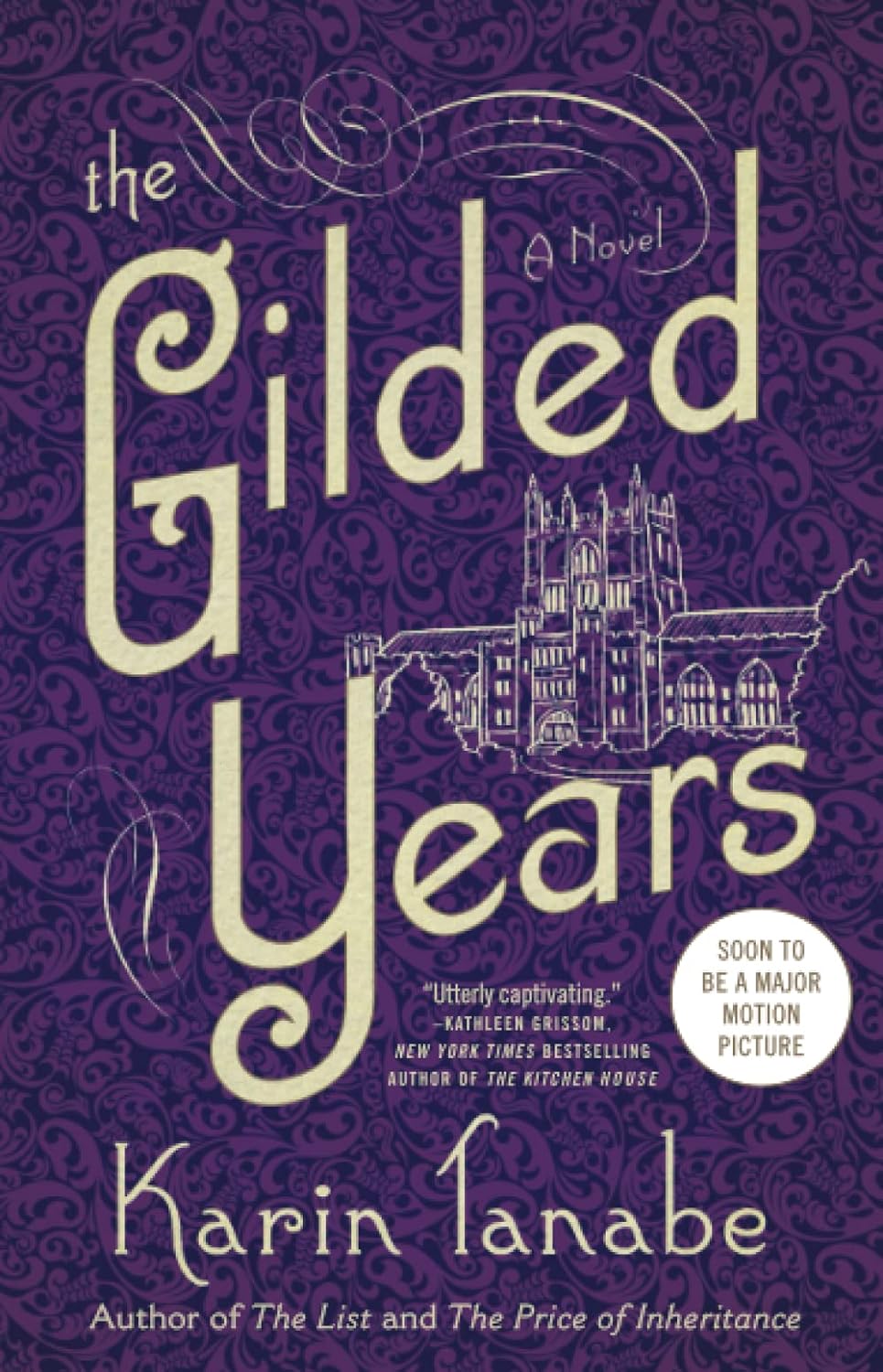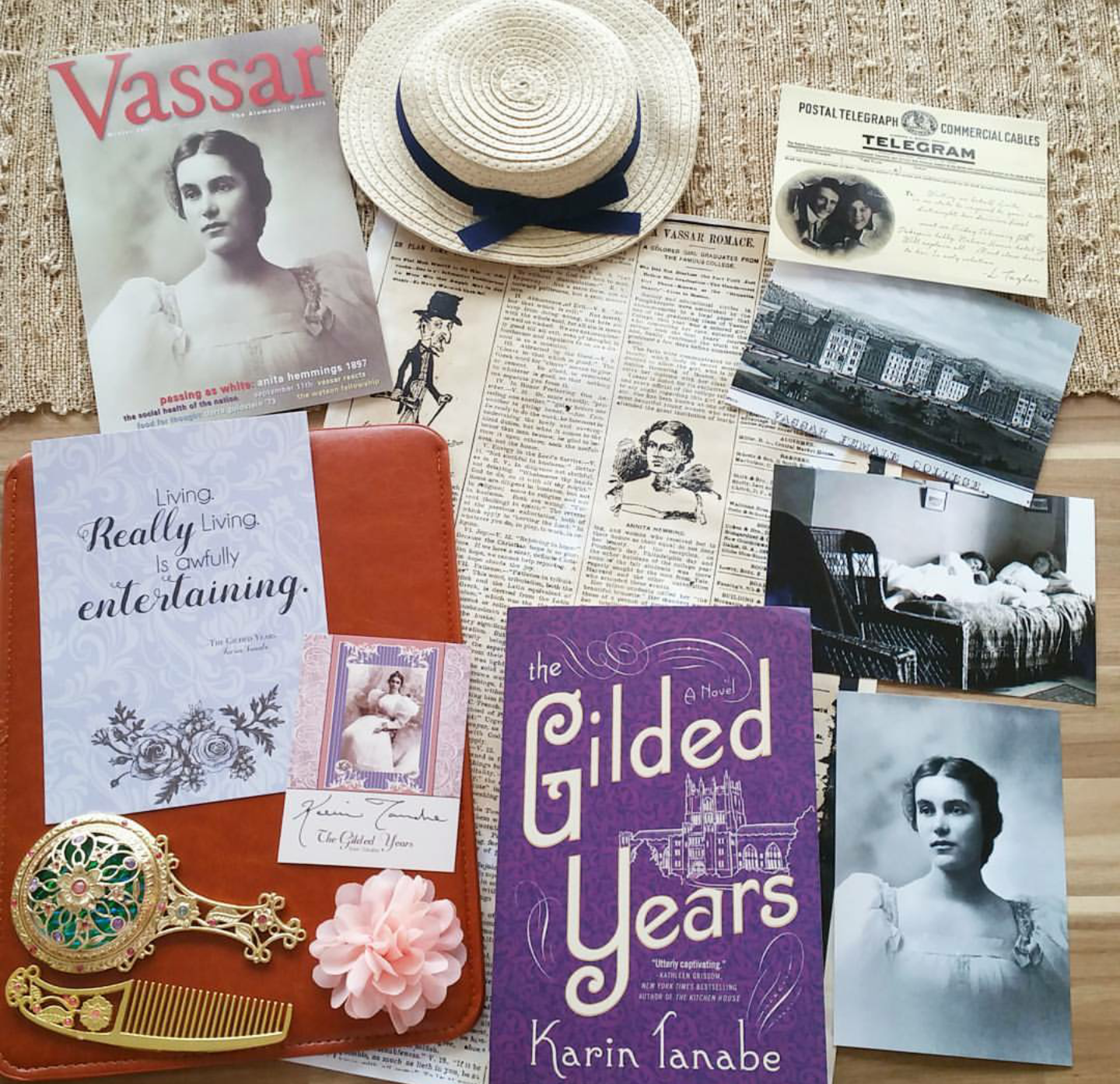
The Gilded Years
PassingmeetsThe House of Mirthin this “utterly captivating” (Kathleen Grissom, New York Times bestselling author ofThe Kitchen House) historical novel based on the true story of Anita Hemmings, the first Black student to attend Vassar, who successfully passed as white—until she let herself grow too attached to the wrong person.
Since childhood, Anita Hemmings has longed to attend the country’s most exclusive school for women, Vassar College. Now, a bright, beautiful senior in the class of 1897, she is hiding a secret that would have banned her from admission: Anita is the only African-American student ever to attend Vassar. With her olive complexion and dark hair, this daughter of a janitor and descendant of slaves has successfully passed as white, but now finds herself rooming with Louise “Lottie” Taylor, the scion of one of New York’s most prominent families.
Though Anita has kept herself at a distance from her classmates, Lottie’s sphere of influence is inescapable, her energy irresistible, and the two become fast friends. Pulled into her elite world, Anita learns what it’s like to be treated as a wealthy, educated white woman—the person everyone believes her to be—and even finds herself in a heady romance with a moneyed Harvard student. It’s only when Lottie becomes infatuated with Anita’s brother, Frederick, whose skin is almost as light as his sister’s, that the situation becomes particularly perilous. And as Anita’s college graduation looms, those closest to her will be the ones to dangerously threaten her secret.
Set against the vibrant backdrop of the Gilded Age, an era when old money traditions collided with modern ideas, Tanabe has written an unputdownable and emotionally compelling story of hope, sacrifice, and betrayal — and a gripping account of how one woman dared to risk everything for the chance at a better life.
Favorite Quotes
"Living, really living, is awfully entertaining."
Featured on the art print
“I want to sleep next to you and listen to you exist.”

What was in the box?
This box shipped in August of 2016. Boxes originally focused mainly on historical fiction novels.
As Book Clubbers read this title, they opened their gifts to find a minature boater hat pin inspired by the style of the day, an ornate gold hand mirror and comb, an authentic recreation of a telegram from the time, a recreation of a real newspaper article about Anita Hemmings, a faux leather tablet sleeve, and photos/clippings about the real Anita Hemmings.
This box involved a lot of research of real articles and photos to bring this story to life, as our team wanted to ensure that we gave the story of Anita Hemmings justice.
Discussion Questions
Chatting about books is what we do! Have you joined our Facebook group yet? Find like-minded readers who love books as much as you do and join in the conversation! All book lovers are welcome!
1. The Gilded Years depicts a time when the attitude toward women's education and the prioritization of marriage was shifting in the United States. Did anything surprise you about the characters' opinions on these topics? Were they more or less similar to your own feelings or goals than you expected? If so, how?
2. "It is not an escape....When one passes for a higher purpose, it's worth it...." (page 56). Do you agree with this sentiment? Why or why not?
3. Anita reflects that Lottie has seemed "the most modern of women" (page 319). What does it mean to be "modern" in 1897? Does the same idea hold true today? In your own experiences, have you come across someone who espouses modern ideas but balks when confronted with situations that veer from tradition? Do you think Lottie was more concerned about Anita's identity or her own reputation? Why?
4. Why do you think that Anita and her husband, Andrew, ultimately decided to pass as white again in New York and raise their children that way? Do you think it affected their relationships with their families? Should it have?
5. Lottie quips, "The faces in New York change, but the last names seldom do" (page 209). The notion of legacy figures prominently throughout the novel, from Vassar's Society of the Granddaughters and wealthy names, to Lottie's fear of being forgotten. What does legacy mean to you? What is the significance of legacy in the novel?

Karin Tanabe
Karin Tanabe is the author of seven novels. Karin is a graduate of Vassar College and lives in Washington, D.C. She was featured in Once Upon a Book Club in August of 2016.




